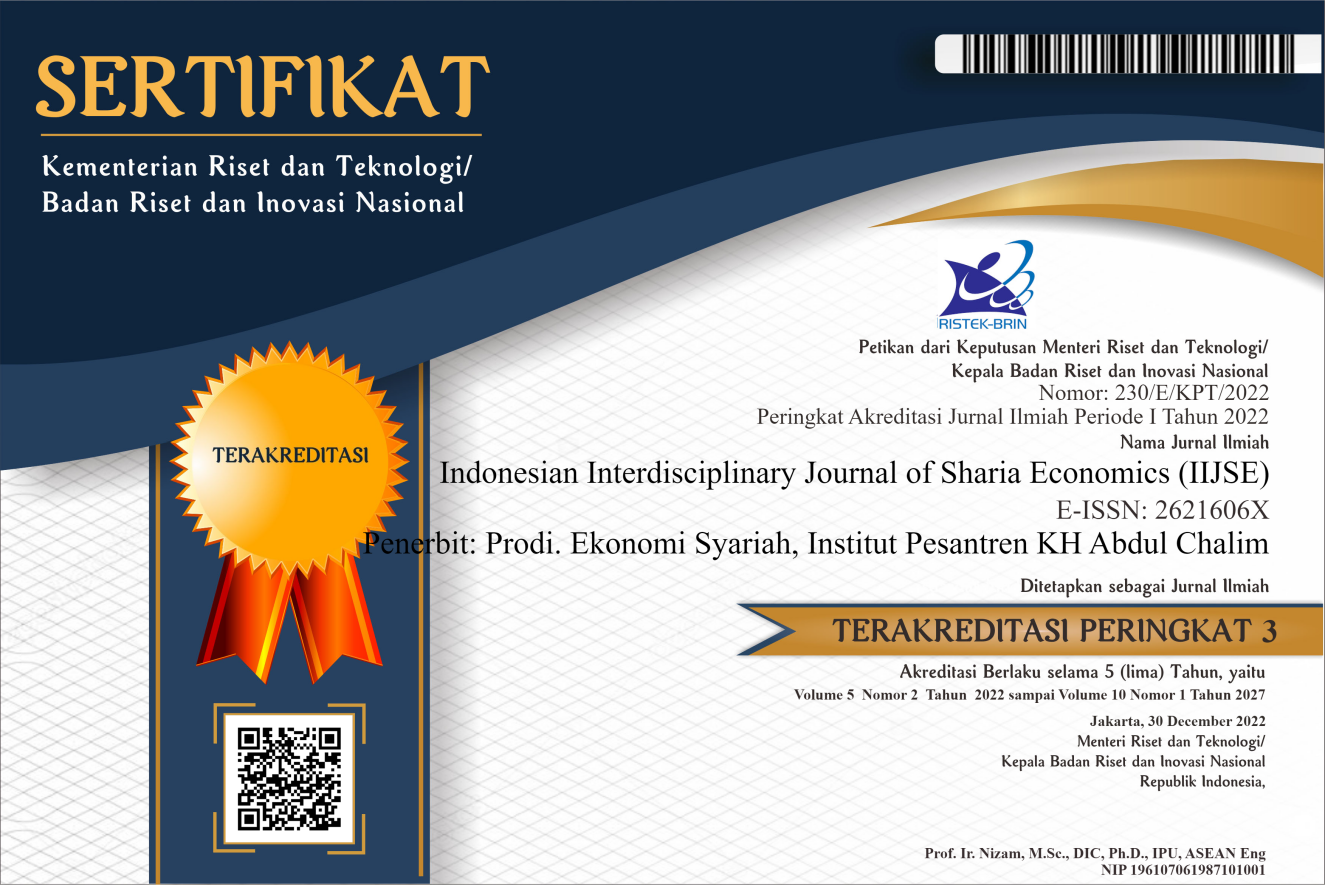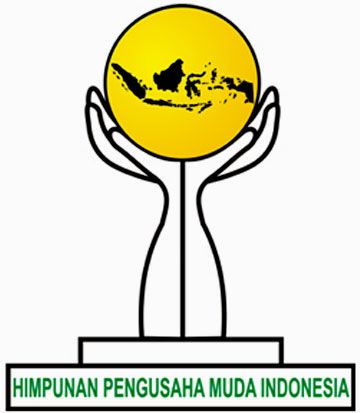An Examination of the Effectiveness of the Internal Control System at Department X in West Java Province
Abstract
Enhancing governance and reinforcing public accountability are pivotal objectives in Indonesia’s ongoing bureaucratic reform, particularly through the application of the Government Internal Control System (SPIP). Despite being regulated at the national level, the operational effectiveness of SPIP within local institutions still encounters various challenges. This research investigates how SPIP is implemented within a Local Government Agency (OPD) in West Java Province, utilizing the five core components stipulated in Government Regulation No. 60 of 2008 and the maturity level indicators set by the Financial and Development Supervisory Agency (BPKP). The evaluation covers three components: objective setting, structure and processes (which include elements such as control environment, risk identification, control activities, information and communication flow, and monitoring processes), and the achievement of SPIP objectives. The analysis also incorporates the Risk Management Index (MRI) and the Corruption Control Effectiveness Index (IEPK). The results indicate that both SPIP and MRI are positioned at maturity level 3 (Defined), whereas IEPK stands at level 4 (Transformed), suggesting that while frameworks are established, they lack comprehensive integration and systematic documentation. These insights underline the urgency of reinforcing internal monitoring, integrating risk control across units, and leveraging digital tools for oversight. The study offers strategic insights for enhancing public sector internal control systems using adaptive and evidence-based practices.
Downloads
References
Anisa, P. R., Afif, M. N., & Melani, M. M. (2023). Analisis Penerapan Sistem Pengendalian Internal Atas Persediaan Barang Dagang pada PT. Indomarco Prismatama Cabang Bogor 1. Innovative: Journal Of Social Science Research, 3(6), Article 6.
Eisenhardt, K. M. (1989). Agency theory: An assessment and review. The Academy of Management Review, 14(1), 57–74. https://doi.org/10.2307/258191
Grahita, N. K. S., Budiadnyani, N. P., Sunarta, I. N., & Arlita, I. G. A. D. (2024). Peran Sistem Informasi Akuntansi, Pengendalian Internal dan Transparansi Terhadap Pencegahan Fraud (Studi Kasus koperasi Di Wilayah Kabupaten Bangli). Jurnal Akuntansi Dan Pajak, 25(2), Article 2. https://doi.org/10.29040/jap.v25i2.16198
Hartikayanti, H. N., Bramanti, F. L., & Gunardi, A. (2018). Factors Affecting the Effectiveness of Financial Management Information System. International Journal of Engineering & Technology, 7(2), 755–758.
Hopkin, P. (2017). Fundamentals of Risk Management: Understanding, Evaluating and Implementing Effective Risk Management. Kogan Page Publishers.
Ibrahim, M., El-Zaart, A., & Adams, C. (2018). Smart sustainable cities roadmap: Readiness for transformation towards urban sustainability. Sustainable Cities and Society, 37, 530–540. https://doi.org/10.1016/j.scs.2017.10.008
Indrayani, K. D., & Widiastuti, H. (2020). Pengaruh Penerapan Sistem Akuntansi Keuangan Pemerintah Daerah dan Sistem Pengendalian Internal Terhadap Kualitas Laporan Keuangan Pemerintah Daerah Dengan Kompetensi Sumber Daya Manusia Sebagai Variabel Moderasi ... Reviu Akuntansi Dan Bisnis Indonesia, 4(1), Article 1. https://doi.org/10.18196/rab.040148
ISO 31000:2018. (n.d.). ISO. Retrieved August 11, 2025, from https://www.iso.org/standard/65694.html
Jensen, M. C., & Meckling, W. H. (1976). Theory of the firm: Managerial behavior, agency costs and ownership structure. Journal of Financial Economics, 3(4), 305–360. https://doi.org/10.1016/0304-405X(76)90026-X
Maghfirah, D. (2019). Analisis Sistem Pengendalian Internal Dalam Peningkatan Kualitas Laporan Keuangan Pada PT. Bima Desa Sawita [Skripsi, Universitas Islam Negeri Sumatera Utara]. http://repository.uinsu.ac.id/7542/
Maulina, A., Alkamal, M., & Fahira, N. S. (2021). PENGARUH PENDAPATAN ASLI DAERAH, DANA PERIMBANGAN, BELANJA MODAL, DAN UKURAN PEMERINTAH DAERAH TERHADAP KINERJA KEUANGAN PEMERINTAH DAERAH. Journal of Information System, Applied, Management, Accounting and Research, 5(2), 390. https://doi.org/10.52362/jisamar.v5i2.373
Mulyadi. (2023). Sistem Akuntansi, Edisi 4. Penerbit Salemba.
Mulyandini, V. C. (2020). Pengaruh Implementasi Internal Control dan Kompetensi terhadap Pemakai Sistem Informasi Akuntansi. Portofolio: Jurnal Ekonomi, Bisnis, Manajemen, Dan Akuntansi, 17(1), Article 1. https://doi.org/10.26874/portofolio.v17i1.196
PP No. 60 Tahun 2008. (n.d.). Database Peraturan | JDIH BPK. Retrieved July 15, 2025, from http://peraturan.bpk.go.id/Details/4876
psikbpkdev. (n.d.). Badan Pemeriksa Keuangan Republik Indonesia. Retrieved August 12, 2025, from https://www.bpk.go.id/ihps/2022/II
Putra, V. D. C., Djajadikerta, H., & Setiawan, A. (2024). Literature Review: The Implementation of Internal Controls in Fraud Prevention For The Banking Sector. Economic Reviews Journal, 3(3), Article 3. https://doi.org/10.56709/mrj.v3i3.325
Putri, T. E., Kuntadi, C., & Pramukty, R. (2023). FAKTOR-FAKTOR YANG MEMENGARUHI PENCEGAHAN KECURANGAN: PERAN AUDIT INTERNAL, SISTEM PENGENDALIAN INTERNAL DAN KOMITMEN ORGANISASI. JURNAL ECONOMINA, 2(7), Article 7. https://doi.org/10.55681/economina.v2i7.674
Rahayu, S. D., & Hartikayanti, H. N. (2023). Perancangan Sistem Informasi Akuntansi Pelaporan Keuangan (Studi Kasus Pada BUMDes Bangkit Sejahtera). Jurnal Riset Akuntansi dan Keuangan, 11(1), 183–206. https://doi.org/10.17509/jrak.v11i1.47412
Rahmany, S., & Fatimah, F. (2020). Analisis Sistem Pengendalian Internal Terhadap Kualitas Laporan Keuangan Pemerintah Daerah Kabupaten Bengkalis Dalam Persfektif Islam: JAS (Jurnal Akuntansi Syariah), 4(1), Article 1. https://doi.org/10.46367/jas.v4i1.223
Raihana, A., Hutagalung, D. N. A., & Sanjaya, R. (2024). Peran Audit Internal Dalam Mendeteksi Kecurangan Laporan Keuangan. 2(3).
Sabrina, N., Kusumawaty, M., Buana, A. S., Welly, W., & Djuniar, L. (2024). PENGARUH SISTEM PENGENDALIAN INTERNAL, AKUNTABILITAS, DAN KOMPETENSI SUMBER DAYA MANUSIA TERHADAP IMPLEMENTASI GOOD CORPORATE GOVERNANCE. Balance : Jurnal Akuntansi Dan Bisnis, 9(1), Article 1. https://doi.org/10.32502/jab.v9i1.8050
Santi, V. L., & Wafa, Z. (2024). Pengaruh Sistem Pengendalian Internal, Komite Audit, Dan Whistleblowing System Terhadap Pencegahan Fraud. Value : Jurnal Manajemen Dan Akuntansi, 19(3), 919–936. https://doi.org/10.32534/jv.v19i3.6497
Siregar, T. H., Harahap, I., & Ridwan, M. (2025). The Role of Islamic Financial Institutions: Maintaining Market Integration and Preventing Distortion. Danadyaksa: Post Modern Economy Journal, 2(2), 154–166. https://doi.org/10.69965/danadyaksa.v2i2.135
Sudarmanto, E., & Utami, C. K. (2021). Pencegahan Fraud Dengan Pengendalian Internal Dalam Perspektif Alquran. Jurnal Ilmiah Ekonomi Islam, 7(1), Article 1. https://doi.org/10.29040/jiei.v7i1.1593
Sugiyono. (2022). Metode Penelitian Kuantitatif, Kualitatif dan R&D (29th ed.). Alfabeta.
Suleiman, A. M., Adamu, A. I. B., & Adamu, S. I. (2025). The Adoption of Digital Marketing by MSMEs Selling Halal Products: Opportunities and Challenges. Malacca: Journal of Management and Business Development, 2(2), 97–103. https://doi.org/10.69965/malacca.v2i2.207
Susanti, E., Yolandasari, H. N., Meilani, P., & Sugiyanto. (2024). Implementasi Akuntansi Keuangan Sektor Publik pada Instansi Pemerintah. Bulletin of Community Engagement, 4(3), Article 3. https://doi.org/10.51278/bce.v4i3.1508
Zaputra, A. R. R., & Mulyandini, V. C. (2023). INTERNAL AUDIT PADA PERUSAHAAN YANG MENERAPKAN LINGKUNGAN BISNIS DIGITAL. Ekonam: Jurnal Ekonomi, Akuntansi & Manajemen, 5(1), Article 1. https://doi.org/10.37577/ekonam.v5i1.546
Copyright (c) 2025 Eli Yualina, Patria Prasetio Adi

This work is licensed under a Creative Commons Attribution-ShareAlike 4.0 International License.
Authors who publish with this journal agree to the following terms:
- Authors retain copyright and grant the journal right of first publication with the work simultaneously licensed under a Creative Commons Attribution License that allows others to share the work with an acknowledgment of the work's authorship and initial publication in this journal.
- Authors are able to enter into separate, additional contractual arrangements for the non-exclusive distribution of the journal's published version of the work (e.g., post it to an institutional repository or publish it in a book), with an acknowledgment of its initial publication in this journal.
- Authors are permitted and encouraged to post their work online (e.g., in institutional repositories or on their website) prior to and during the submission process, as it can lead to productive exchanges, as well as earlier and greater citation of published work.

















